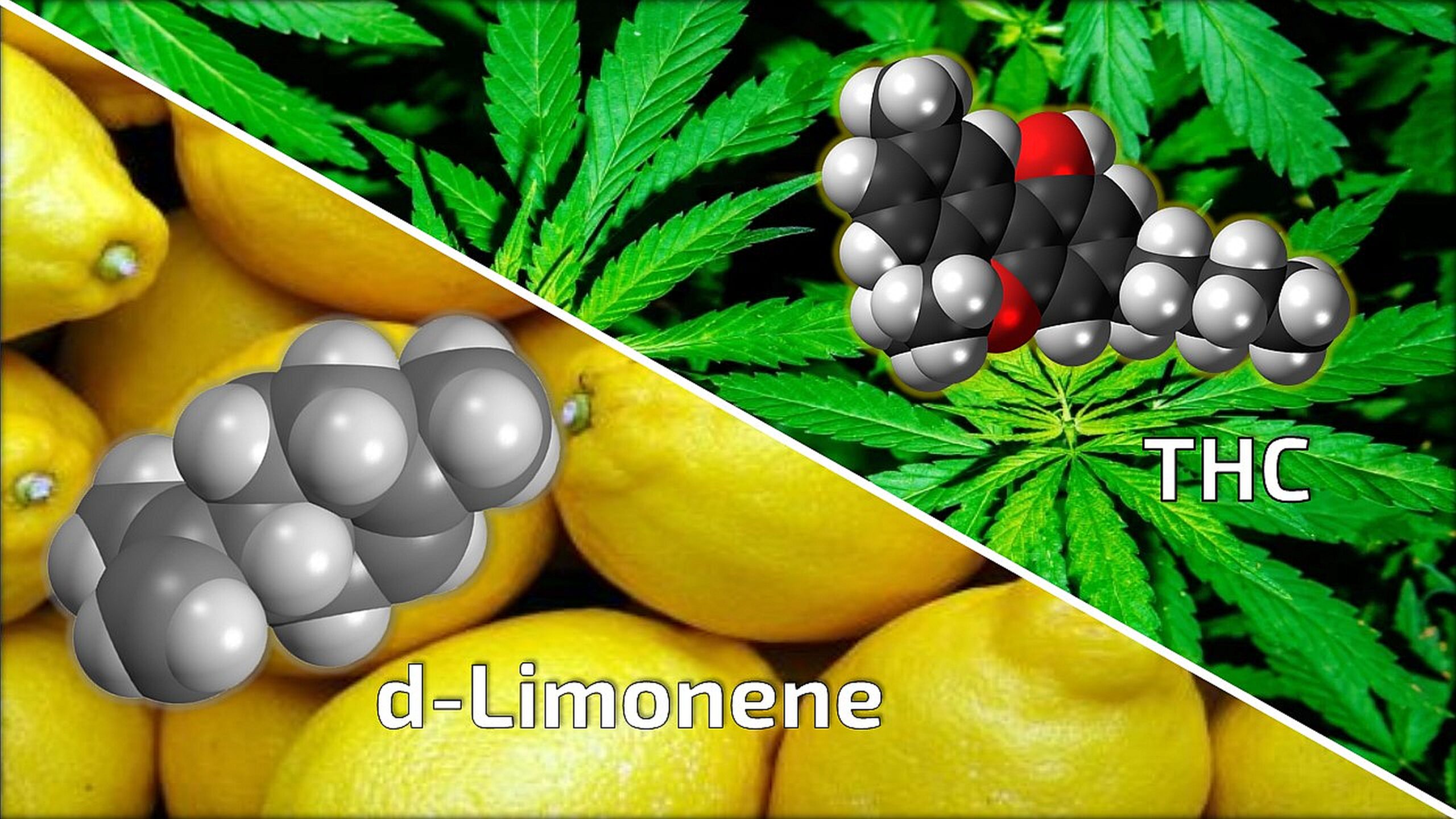
A Johns Hopkins Medicine-led research team has added to evidence that a chemical found naturally in cannabis (also known as marijuana) can — in the right amounts — lessen the anxiety-inducing effects of tetrahydrocannabinol (THC), the primary psychoactive sister chemical found in cannabis. The finding has the potential to advance the medicinal use of THC, and reduce the risks of its recreational use in some people.
The substance, called d-limonene, is one of the most abundant terpenes, or essential oils, in the cannabis plant, and has shown promise in rodent studies in reducing anxiety behaviors. However, there has been little research on d-limonene or other terpenes in humans. As a group, terpenes are responsible for the taste, aroma and color of plants.
In a recent study, , investigators tested the effects of vaporized d-limonene alone and mixed with THC to examine the anxiety-reducing effects in humans. They found the addition of d-limonene significantly reduced overall ratings of feeling “anxious/nervous” and “paranoid” compared with rating the effect of THC alone.
As cannabis legalization becomes more prevalent, its use for both medicinal and non-medicinal purposes is expanding rapidly. In recent years, selective breeding of cannabis plants has resulted in strains that contain upwards of 20% – 30% THC, compared with an average of 12% a decade ago. This may make it more difficult for users to be consistent with the amount of THC they consume on a given occasion.
THC interacts with receptors in the brain to produce feelings of relaxation and euphoria. However, researchers say that when a user is exposed to higher-than-usual doses of THC, the drug can also trigger anxiety, fear and panic.
“People use cannabis to help reduce anxiety, depression and post-traumatic stress disorder, but since THC levels vary widely, if a person overshoots their tolerance of THC, cannabis can induce anxiety rather than relieve it,” says study senior author , professor of psychiatry and behavioral sciences at the Johns Hopkins University School of Medicine. “Our study demonstrates that d-limonene can modulate the effects of THC in a meaningful way and make THC more tolerable to people using it for both therapeutic and non-therapeutic purposes.”
In the study, 20 healthy adults with a median age of 26 participated in up to 10 outpatient sessions ,during which they inhaled vaporized d-limonene alone, vaporized THC alone, vaporized THC and d-limonene together, or vaporized distilled water (as a placebo).
The study was double-blinded, meaning neither the researchers nor participants knew who was receiving which mixture. Twenty participants completed nine test sessions and 12 participants also took part in an optional tenth session of THC combined with a triple-dose (15 milligrams) of d-limonene to test the extreme extent of the essential oil’s dose response curve. This was conducted after appropriate safety data were obtained from the lower doses (1 milligram and 5 milligrams).
In all participants, the researchers measured subjective drug effects, subjective ratings of mood, vital signs (heart rate and blood pressure) and cognitive performance (measures of memory, psychomotor ability and attention) at baseline, and then an additional nine times after initial exposure over the course of each of the six-hour test sessions. They also collected blood and urine samples from each subject before, during and after each six-hour session to test for THC and d-limonene levels.
The research team concluded that combining d-limonene with THC significantly reduced subjective indicators/reports of THC-induced anxiety in participants. These reductions were greater as the dose of d-limonene was increased.
Additionally, they saw no interference with THC’s subjective, cognitive or physiological effects when co-administered with d-limonene, as well as no effects from d-limonene alone that differed from the placebo test.
“This study is a first step in uncovering how we can mitigate risks of THC when used in medicine, and also is targeted at making cannabis safer for the general, non-therapeutic consumer,” says study lead author , associate professor of psychiatry and behavioral sciences at the Johns Hopkins University School of Medicine.
The researchers plan to continue experimenting with other terpenes alone and in combination with THC to see how they interact with each other, as well as replicate the d-limonene study in larger and more diverse clinical populations. They also plan to test alternative methods of administration, such as oral ingestion.
Along with Vandrey and Spindle, members of the study team from Johns Hopkins Medicine are George Bigelow, Lauren Pollak and C. Austin Zamarippa. Other team members are Ethan Russo at CReDO Science, and Uwe Christians, Jost Klawitter, Cristina Sempio, Touraj Shokati, Bridget Tompson and Alexandra Ward at the University of Colorado Anschutz Medical Campus.
Spindle has served as a consultant for Canopy Health Innovations Inc. and has received research funding from Cultivate Biologics. Vandrey has served as a consultant or received honoraria from Mira1a Therapeutics Inc., Jazz Pharmaceuticals, Charlotte’s Web, Syqe Medical Ltd. and WebMD. Russo is the founder and CEO of CReDo Science and a scientific adviser to True Terpenes.
A patent application (PCT/US2022/014296) has been submitted by The Johns Hopkins University on behalf of Vandrey, Spindle and Russo for the use of d-limonene to reduce THC-induced anxiety, based on the data presented in this study (after the trial concluded and data were analyzed).
The other study authors do not have financial or conflict-of-interest disclosures.
